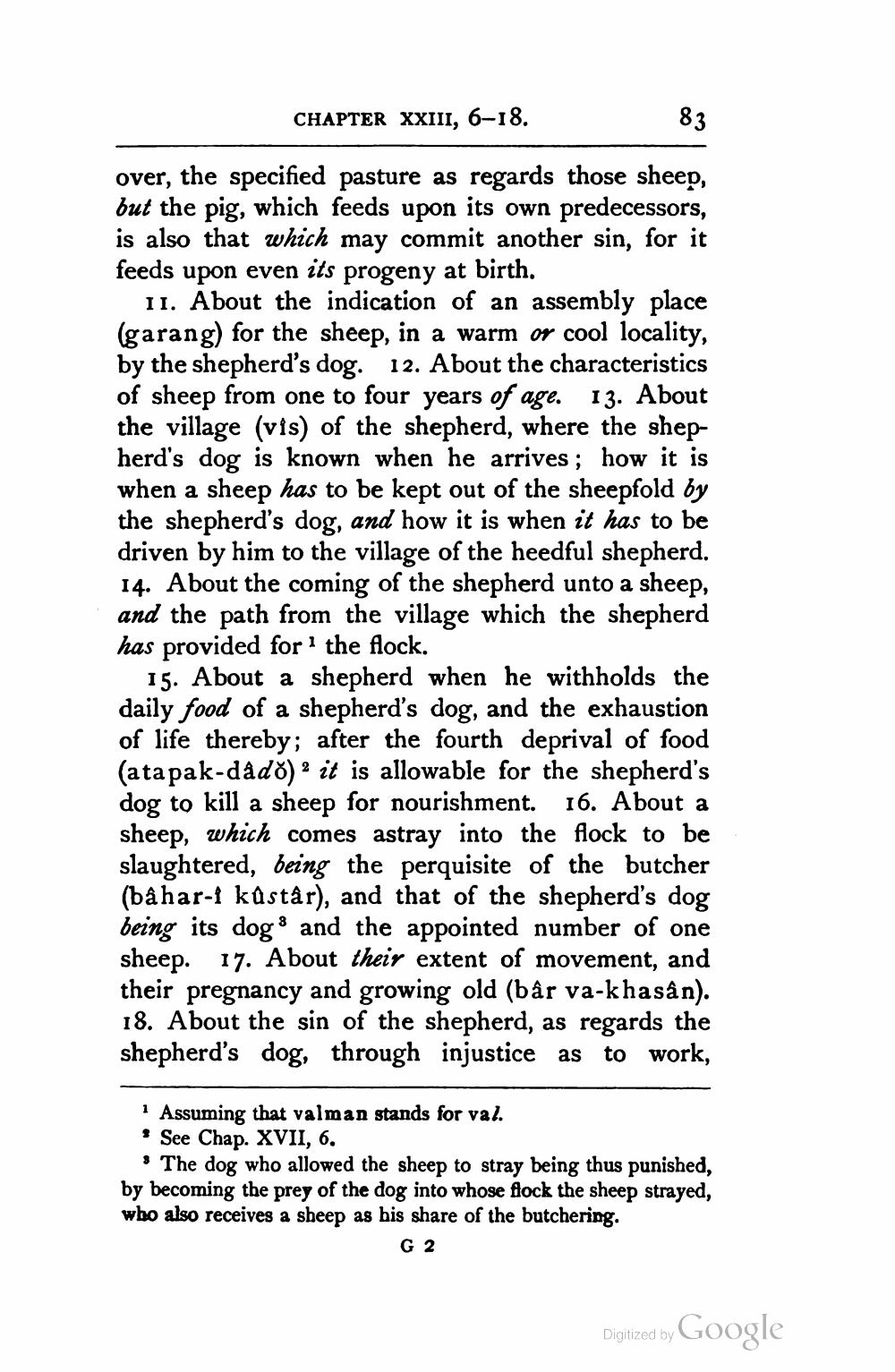________________
83
CHAPTER XXIII, 6-18.
over, the specified pasture as regards those sheep, but the pig, which feeds upon its own predecessors, is also that which may commit another sin, for it feeds upon even its progeny at birth.
11. About the indication of an assembly place (garang) for the sheep, in a warm or cool locality, by the shepherd's dog. 12. About the characteristics of sheep from one to four years of age. 13. About the village (vis) of the shepherd, where the shepherd's dog is known when he arrives; how it is when a sheep has to be kept out of the sheepfold by the shepherd's dog, and how it is when it has to be driven by him to the village of the heedful shepherd. 14. About the coming of the shepherd unto a sheep, and the path from the village which the shepherd has provided for the flock.
2
15. About a shepherd when he withholds the daily food of a shepherd's dog, and the exhaustion of life thereby; after the fourth deprival of food (atapak-dado) it is allowable for the shepherd's dog to kill a sheep for nourishment. 16. About a sheep, which comes astray into the flock to be slaughtered, being the perquisite of the butcher (bâhar-i kûstâr), and that of the shepherd's dog being its dog and the appointed number of one sheep. 17. About their extent of movement, and their pregnancy and growing old (bâr va-khasân). 18. About the sin of the shepherd, as regards the shepherd's dog, through injustice as to work,
1 Assuming that valman stands for val.
See Chap. XVII, 6.
The dog who allowed the sheep to stray being thus punished, by becoming the prey of the dog into whose flock the sheep strayed, who also receives a sheep as his share of the butchering.
G 2
Digitized by
Google




